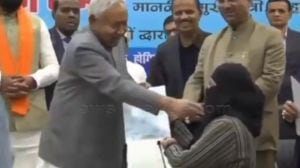CBI fails to get nod to probe officers in rice export scam
The Commerce Ministry gave its clearance and the Director-General of Foreign Trade DGFT issued a notification.
The government has refused permission to the Central Bureau of Investigation to initiate a probe against six top bureaucrats who were working under the Ministry of Commerce and Industry in connection with the rice export scam that took place between 2007 and 2009.
According to the CBI,the six bureaucrats,some of whom have since retired,allegedly played a role in bending norms to let private players strike export deals with some African nations,causing nearly Rs 500 crore loss to the exchequer.
The CBI,which started investigating the scam on recommendations of the Central Vigilance Commission after the Commerce Ministry sent the latter an inquiry report,found the involvement of middlemen,private firms and chiefs of PSUs,including the State Trading Corporation STC,Minerals and Metals Trading Corporation MMTC and Projects Equipment Commodities Ltd PEC.
The probe agency recently sought permission from the Commerce Ministry under 6A of the Delhi Special Police Establishment Act to register an FIR as most of the officers under scanner were of the rank of joint secretary and above. Sources said the ministry,while refusing permission,said it sent its inquiry report to CVC only for departmental action and did not want a CBI probe.
The CBI,which refused to name the six officials,said it found prima facie evidence of collusion in the scam,which needs a probe. It said it was still examining the report and will take action against other officials allegedly involved.
The allegations in the report submitted by Commerce Ministry pertain to fraud and corruption in the humanitarian export of non-basmati rice to some African nations between 2007 and 2009.
The export of non-basmati rice was banned in October 2007 to curb inflation and ensure food security for weaker sections. However,after some African countries made distress calls,the government partially lifted the ban. The Commerce Ministry gave its clearance and the Director-General of Foreign Trade DGFT issued a notification.
In spite of DGFT guidelines allowing only government trading agencies to export grain,the PSUs let private firms strike deals with the African governments. MMTC,STC and PEC retained margins between only 1 per cent and 1.5 per cent while the private suppliers made between 26 and 40 times of what the PSUs made.
- 01
- 02
- 03
- 04
- 05































